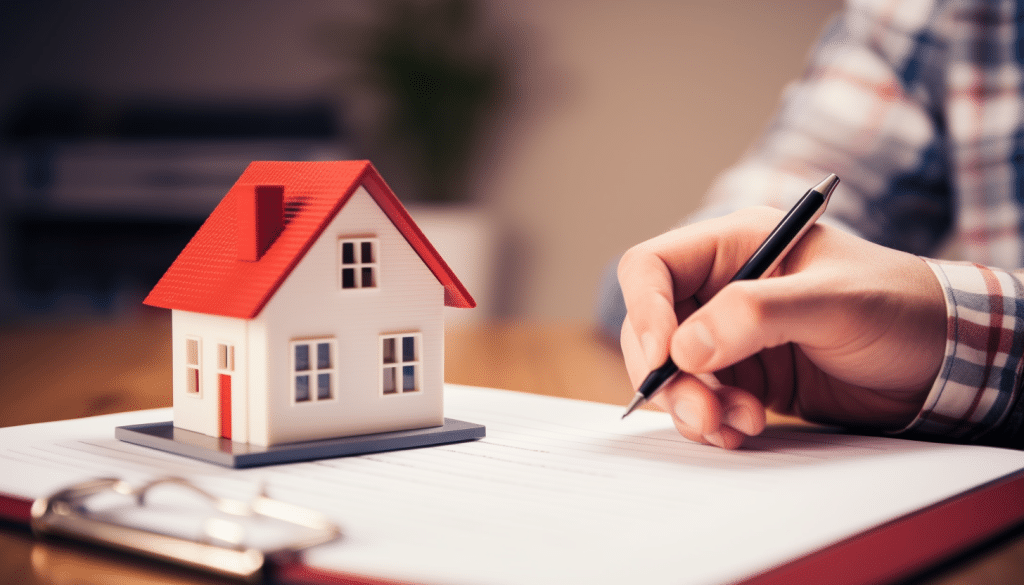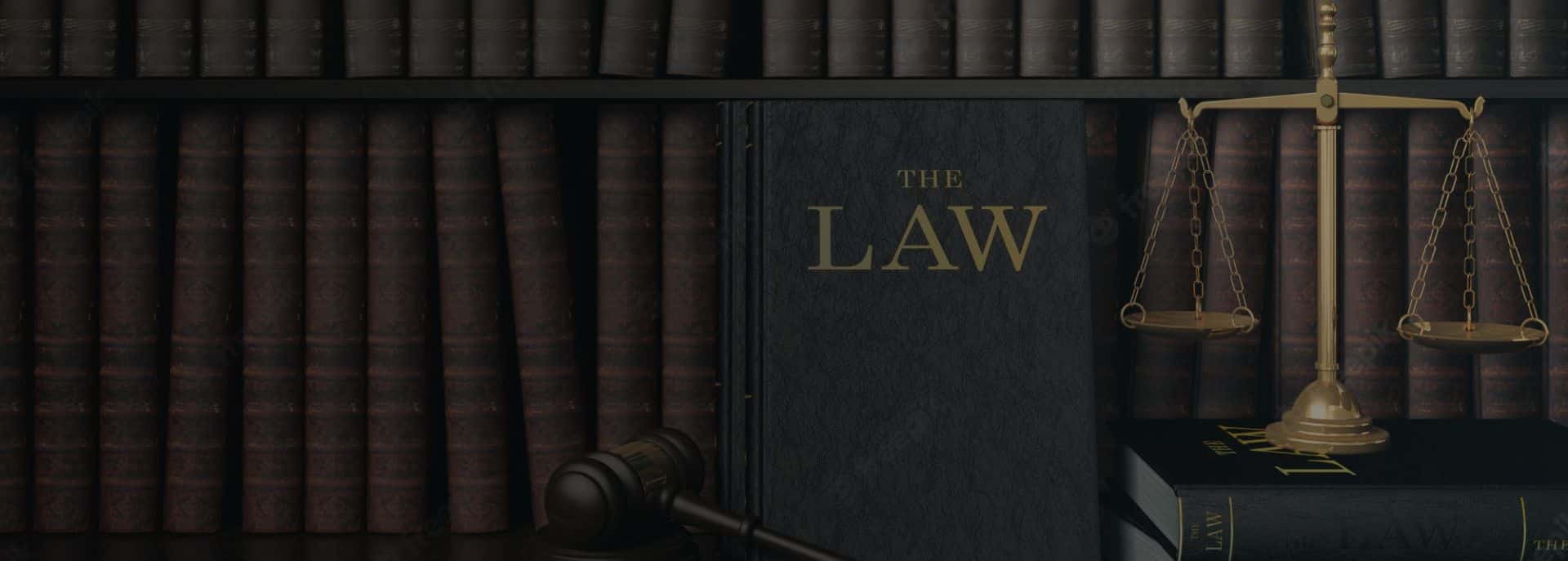Checklist for First-Time Homebuyers 2025 Update

TL;DR:First-Time Homebuyer Checklist
- Know your budget: Follow the 28/36 rule.
- Get mortgage pre-approval: Proves you’re serious.
- Hunt smart: Balance budget, space, location.
- Do your checks: Appraisal + inspection = fewer surprises.
- Hire a lawyer: Protects you during closing.
- Insure & finalize: Get homeowners’ insurance + walk-through.
With patience, planning, and the right team, buying your first home can be stress-free.
Need Legal Help?
Our experienced real estate lawyers in Toronto can guide you through contracts, closing, and more.
Hire a LawyerBuying a house for the first time sure is a significant milestone and a step towards fulfilling lifelong dreams. With many details to consider, it is both stressful and extremely expensive.
However, there’s an easy way to reduce headaches and ease the home hunt – a thorough checklist for first-time home buyers, that has everything from a credit score check to real estate lawyer in Toronto contacts, to keep things organized and accurate.
Contents
- 1 The 7-Step First-Time Home Buyer Checklist
- 1.1 #1. Be honest about what home you can afford
- 1.2 #3. Get mortgage pre-approval
- 1.3 #4. Start home hunting
- 1.4 #5. Review the house you like, conduct a home appraisal and inspection
- 1.5 #6. Hire a real estate lawyer to close the deal
- 1.6 #7. Get homeowners’ insurance, perform a final walk-through and be ready to move
- 2 The Role of a Toronto Real Estate Lawyer in the First-Time Homebuying Closing
- 3 Conclusion
- 4 Buying a House For The First Time FAQs
The 7-Step First-Time Home Buyer Checklist
One of the core principles of effective task management is to break big and frustrating tasks into something you can call a “quick win”. The homebuying process definitely requires this approach.
Firstly, be sure to keep your expectations low. No miracles on the real estate market in Toronto will wait for you. The whole closing process can take months to complete. But if you are calm and patient, it will definitely be worth it. So, here is your checklist for first-time home buyers.

#1. Be honest about what home you can afford
First off, sit down and calculate your deposit that you can waste on up-front and ongoing costs without compromising your quality of life. Unfortunately, the down payment isn’t the only expense. There are also closing costs, inspections, and potential repairs or renovations to consider.
In 90% of cases, you can’t buy a house without applying for a mortgage. That’s why your credit score is important for your mortgage eligibility and the interest rate a bank will offer to you. A higher score means lower interest rates, so make sure your credit history is in order. Get a copy of your credit report and comb through it for errors or areas of improvement.
Tip: Experts recommend you follow the 28/36 rule. Yes, you’ll have only 36% of free-to-use money, but with proper budgeting, you won’t feel the weight of the mortgage at all. So, according to this strategy, your payments shouldn’t exceed specific percentages of your gross monthly income:
- Your monthly mortgage payment (and other housing costs) shouldn’t exceed 28%
- Your total debt payments shouldn’t exceed 36%
So, if you earn $5,000 per month before taxes, then your total monthly housing costs shouldn’t exceed $1,400, and your total monthly debt payments shouldn’t exceed $1,800.
#3. Get mortgage pre-approval
A mortgage pre-approval strengthens your position as a serious buyer in the eyes of sellers and secures your peace of mind. Research lenders, traditional banks, credit unions, or mortgage brokers. Each will offer different rates and terms, so find the one that suits your financial situation.
As a first-time home buyer, you can also explore several special buying programs in 2025 from the government that aim to make mortgage repayment easier:
- Land Transfer Tax Rebate
- First Home Savings Account (FHSA)
- First-Time Home Buyers’ Tax Credit (HBTC)
The lowest interest rate isn’t the only consideration. Terms, fees, and the reputation of the lender matter a lot, too. If everything goes well, you can accelerate your mortgage repayment later.
#4. Start home hunting
Every first-time homebuyer dreams of the perfect home. But what is the ideal home for you exactly? You need to distinguish between what you want and what’s really important. To make decisions easier, we recommend using the ‘home triangle’: budget, space and location. While a home office or a spacious backyard might be on your wishlist, things like:
- Home location (proximity to work or public transportation)
- Neighbourhood safety
- Future development plans
- House size (the number of bedrooms)
- Local school ratings
Should often be considered first. On this stage, you may want to consult with a real estate agent. A reliable real estate agent by your side makes the homebuying process much easier. Their expertise and understanding of the local market will really move the process along. They will also help you with negotiating prices and handling paperwork.
Choose someone with a proven track record, preferably someone recommended by family or friends. Additionally, consider buying homes in development or buying at auction since these options are generally cheaper.
#5. Review the house you like, conduct a home appraisal and inspection
House hunting is indeed the most exciting step. Visit various homes, attend open houses, and take notes of the things you notice and that truly matter to you. Imagine that you already live in the house you like, and answer the following questions (but, again, be honest with yourself!):
- Is the house price within your budget?
- What are the running costs (council tax and utility bills)?
- Does the home meet your current and future needs and wants?
Once you’ve zeroed in on a property, it’s time to make an offer. But before you do, take extra time and conduct a home appraisal to assess the home’s value. This will determine the amount of the loan you can get.
Moreover, you shouldn’t overlook a home inspection as well. To do so, hire a licensed third-party professional. The inspector (or surveyor) will thoroughly check every corner of your future home (including but not limited to plumbing, where the most questions arise, electrical systems, grounds, exterior and much more). It’s not obligatory, but it will definitely save you a lot in the long run. Plus, you can negotiate and reduce the home price if any issues arise.
#6. Hire a real estate lawyer to close the deal
After your offer is accepted, you’re still in progress. As mentioned above, a professional home inspection can reveal hidden issues with the property, from foundational cracks to plumbing problems. Once everything is in order, review your Agreement of Purchase and Sale meticulously before finalizing the deal.
This is where the delicate print matters, so consult a lawyer to avoid future complications. Unlike conveyancers, De Krupe Law specialists have a broader experience in real estate transactions and can help you with far more issues that fall outside a conveyancer’s scope.
#7. Get homeowners’ insurance, perform a final walk-through and be ready to move
To secure your investment and prove that the closing was done, you need to sign up for homeowners’ insurance. Although it requires some paperwork, our lawyers can assist you with that. While you’re waiting for the final approval and your lawyer handles the paperwork, you can take some time to walk through the property one more time to make sure that the negotiated repairs have been performed and everything is in working order.
With all the formalities out of the way, the final step is moving into your new home. Just plan the move, pack, transfer utilities, and change your address on official documents. You can finally enjoy living in your new home!
The Role of a Toronto Real Estate Lawyer in the First-Time Homebuying Closing

While real estate agents help you find and negotiate your dream home, a real estate lawyer’s part is equally indispensable, especially when it’s your first time making a significant purchase. Here’s how they can be helpful:
Conduct a title search
Firstly, a real estate lawyer conducts a title search and title transfers. All to make sure that the property you’re looking to buy has no issues such as liens, encumbrances, or disputes. If there are any issues, your lawyer will help to solve them on the spot.
Review contracts
Real estate contracts can be long and filled with confusing legal jargon. A real estate lawyer meticulously reviews any agreement or contract you’re about to sign and explains the terms in plain language. They’ll protect your interests and advise on any potentially unfavourable terms.
Handle funds
Real estate transactions involve significant amounts of money. Lawyers can hold your deposit in an escrow account, ensuring its safety until you finish the deal. Sometimes, real estate transactions can be less straightforward than you want them to be. Some of the possible complexities are:
- Multiple parties
- Foreign investors
- Unique property types
In such scenarios, a lawyer will make sure that all financial transactions, including the down payment and closing costs, are handled correctly and transparently.
Provide a smooth closing for your peace of mind
The closing process can be complex. With endless documents to sign and checks to ensure everything goes off without a hitch. Your real estate lawyer in Toronto will prepare all necessary documentation, make sure you pay all fees and taxes, and guide you through the final steps of your home purchase.
In general, a real estate lawyer, especially for first-time buyers, provides an unmatched peace of mind in any deal. You don’t have to face any legal issues since you divide your responsibility with someone who has already closed countless deals. Our professional real estate lawyers check all legal aspects of your home purchase, so there will be no hidden surprises for you.
Conclusion
The first-time homebuying process may seem like a challenging maze, but proper planning and the right team by your side make all the difference. Don’t save your time and expenses where they aren’t really needed. The services of a lawyer seem like an unnecessary additional expense initially. Still, in the long run, it’s a small price to pay for the assurance and safety they bring.
Buying a House For The First Time FAQs
-
What are the important factors to consider when choosing a neighbourhood?
Check the local crime rates through police reports or online platforms. Look for neighbourhoods that offer easy access to grocery stores, hospitals, banks, schools, and recreational facilities. Evaluate the availability of public transportation, major highways, and your daily commute to work or school.
-
What are the common mistakes first-time homebuyers make?
Many first-time homebuyers underestimate the costs of buying a house. It not only includes the mortgage but also property taxes, insurance, and maintenance. You also need to get pre-approved for a mortgage before house hunting.
-
Is it necessary to have a real estate agent?
No, you’re not legally obliged to have a real estate agent or real estate lawyer. However, a knowledgeable real estate agent helps with offer validation and negotiation. They will also guide you through all the needed paperwork. They usually have access to comprehensive property listings, including those not available to the public. Meanwhile, real estate lawyers help you with the closing stage of the deal, making sure you get the best mortgage possible.


